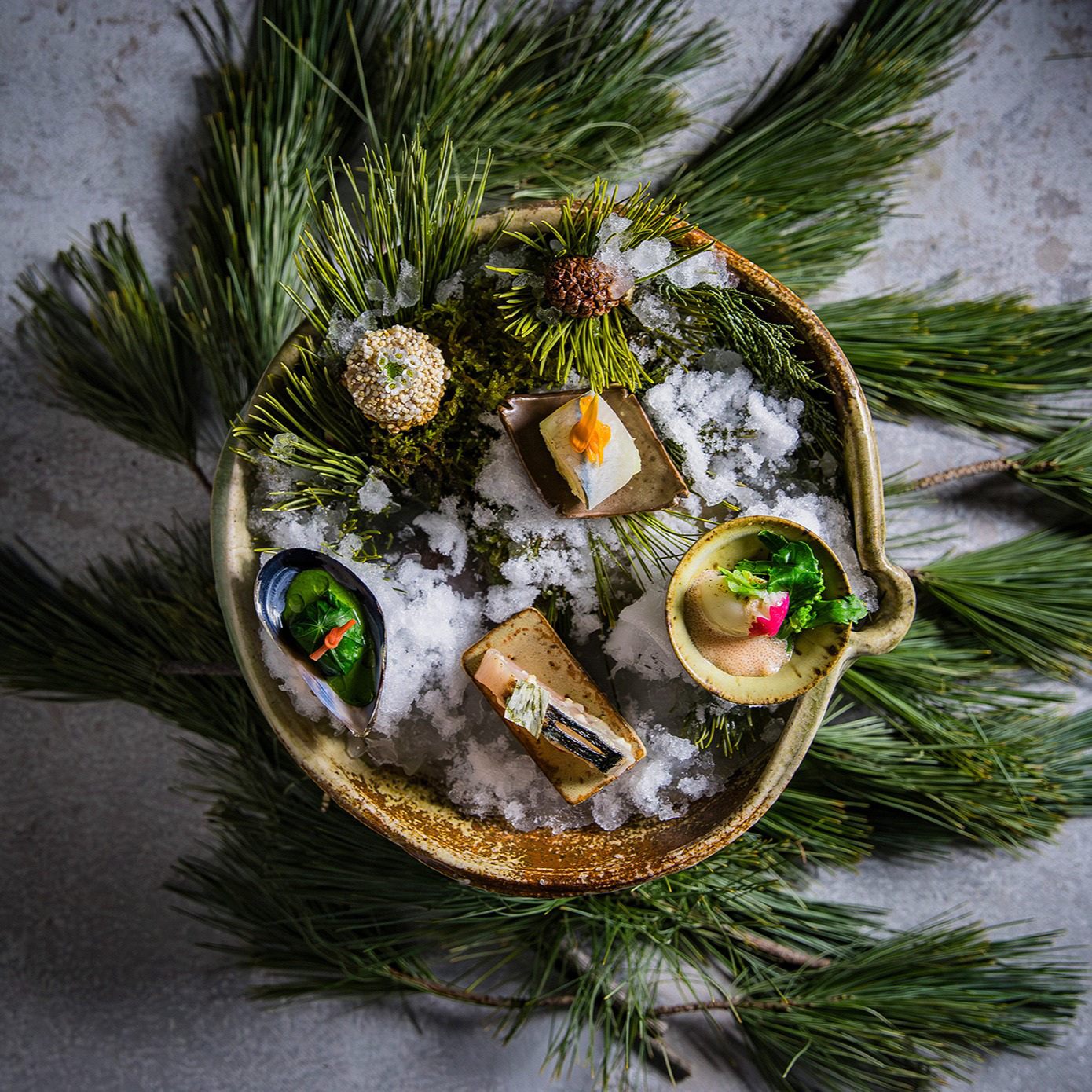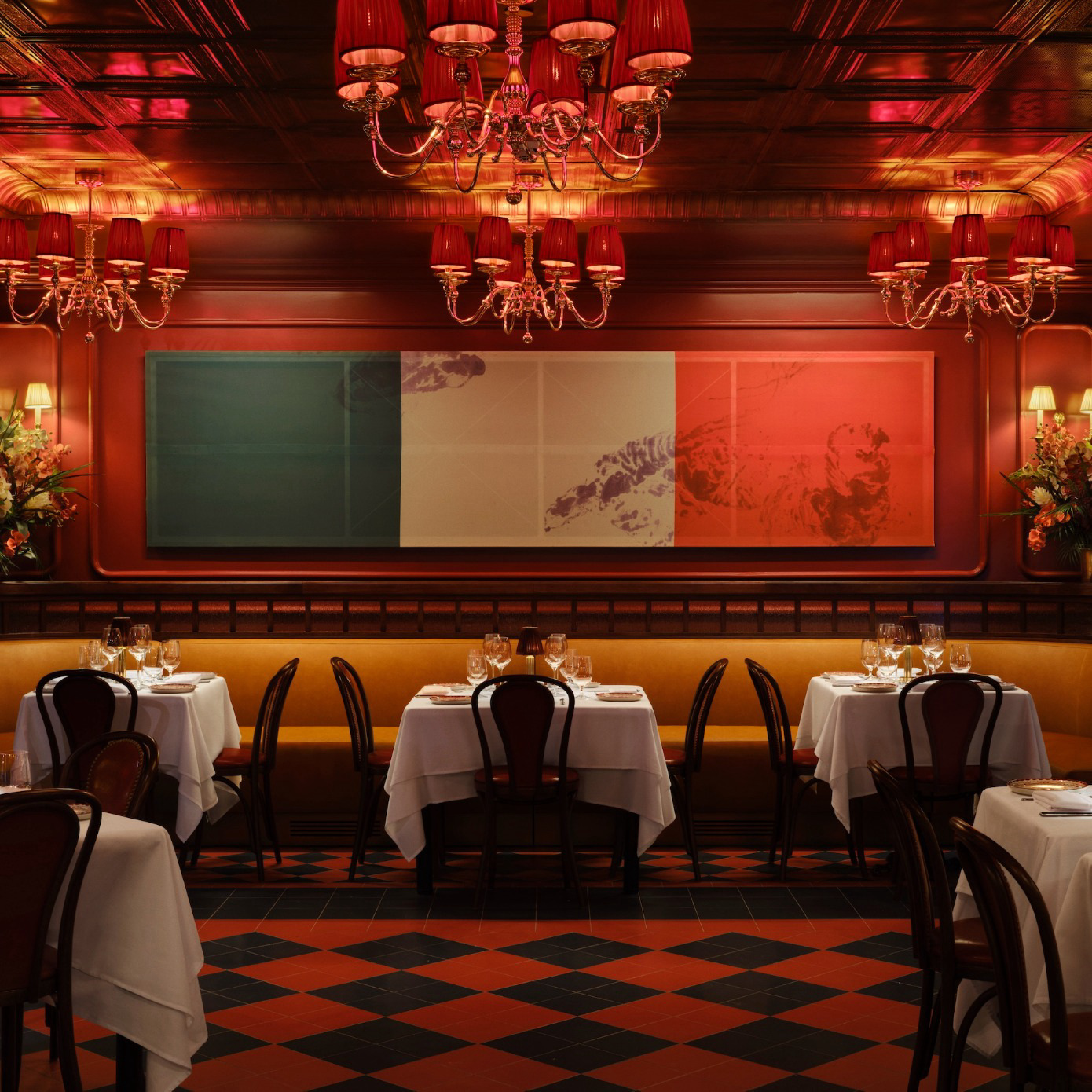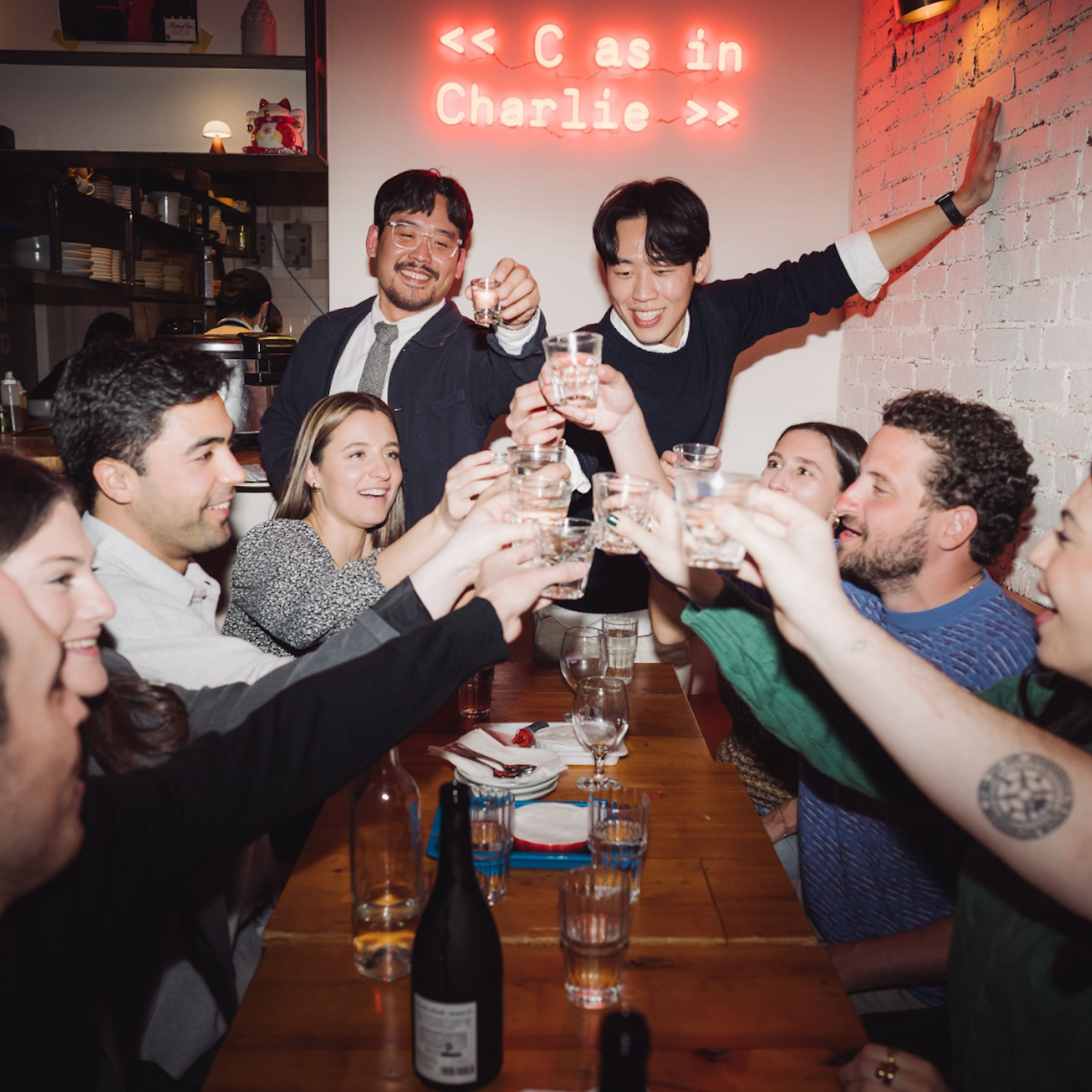A restaurant is a lot of things—a place where you can try something delicious filled with ingredients you can’t pronounce, somewhere you can nurse a cold drink at a bar while bonding with the person behind it, the only kind of business that offers adults free crayons. Above all, a restaurant is a place to gather, to feel warm and nourished and connected with your fellow human beings. And after a city-defining tragedy like the Palisades and Eaton fires in Los Angeles, isn’t that all we want?
Hundreds of chefs and restaurateurs throughout the city have reached into their own already-stretched-thin pockets and pantries to quite literally serve their communities by feeding first responders and the displaced. But they also want to serve guests in their dining rooms.
In the wake of the fires, the restaurant business—which already operates on razor-thin margins—is suffering as proprietors wrestle with astounding financial losses and a population that is either displaced or staying home. As a result, the city’s eateries have had one of the slowest Januarys in memory, cutting hours, staff, and menu items to stay afloat. Each place is its own ecosystem, with the losses snaking their way from owners to staff to suppliers, all compounded for restaurant workers already affected by the fires.
Yet the industry’s response in recent weeks has shown its resolute commitment to both craft and community. “My ultimate hope is that this causes the dining public to think a little harder about who they want to support and which places matter to them and that they then make an effort to visit,” says Emily Wilson, who runs the LA dining-focused newsletter The Angel. “Not just right now, but moving forward.”
Here, CULTURED speaks with chefs and restaurant owners about their experiences during the fires, and the impact of hospitality and a good meal following the unthinkable.
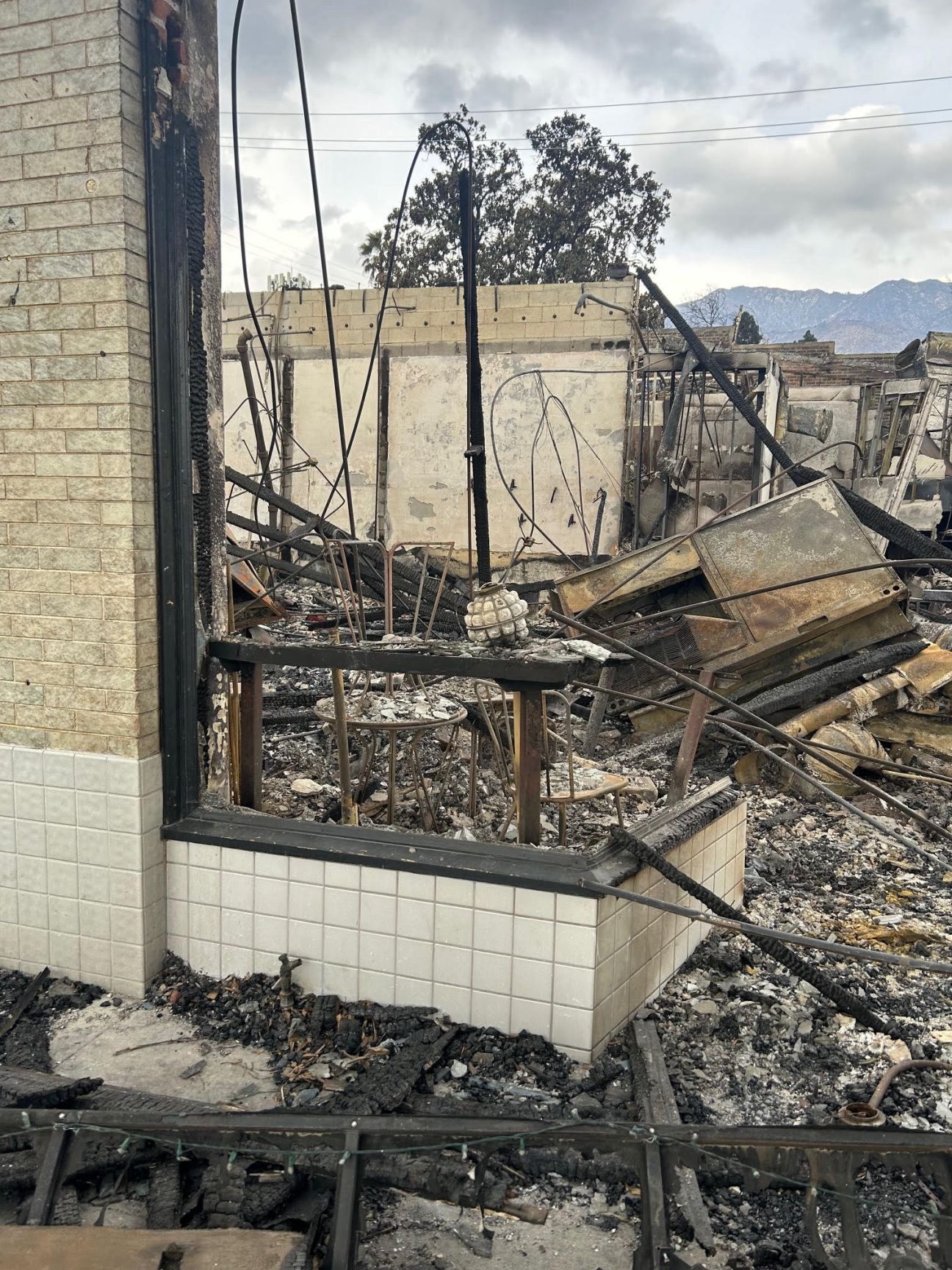
Paola Guasp, Amara Kitchen Highland Park (open) and Amara Kitchen Altadena (lost in the Eaton Fire)
Amara Kitchen was founded by Paola Guasp in 2013 in Highland Park. The restaurant focused on giving classic dishes a healthy twist—without compromising on deliciousness. Guasp opened a second location in Altadena in 2021, which was lost in the Eaton fire. You can donate to her employee relief fund here.
“I was at home in Altadena on Tuesday night, and my husband and his friends were like, ‘Oh my God, look at the mountain.’ I’m born and raised in LA, so I’ve seen fire before. I was casually playing with my 2-year-old while they freaked out.
Even as I got ready to evacuate [the next] morning, I didn't feel worried. A prep cook told me that there was a crockpot on at the Altadena location, and I felt like I should go turn it off. There were fires everywhere by then, but I was insistent; I couldn’t really register what was happening. We pulled up to our building [which was on fire], and reality set in. I was like, ‘Get us out of here. Drive away.’
LA has changed so much throughout my lifetime, but Altadena feels like genuine LA. Almost everyone who lives there is born and raised there. The homes are generational. I moved to Altadena in 2016. One day I was driving around, just moved by the beauty of it. I saw a building on a cute street with a 'For Lease' sign. It had no kitchen, nothing. It ended up becoming the restaurant.
What's funny is I just remodeled the Altadena [location]. I don't have investors; I'm a very small business. When it first opened, I didn't have the funds to make it look how I wanted. We've been doing well there for almost four years, [so] I just spent money on a hanging art installation and new chairs and put tile up.
I'm actually happy I saw the restaurant burning because if I had found out on social media or through a text, I don't know if I would've been able to process it.”
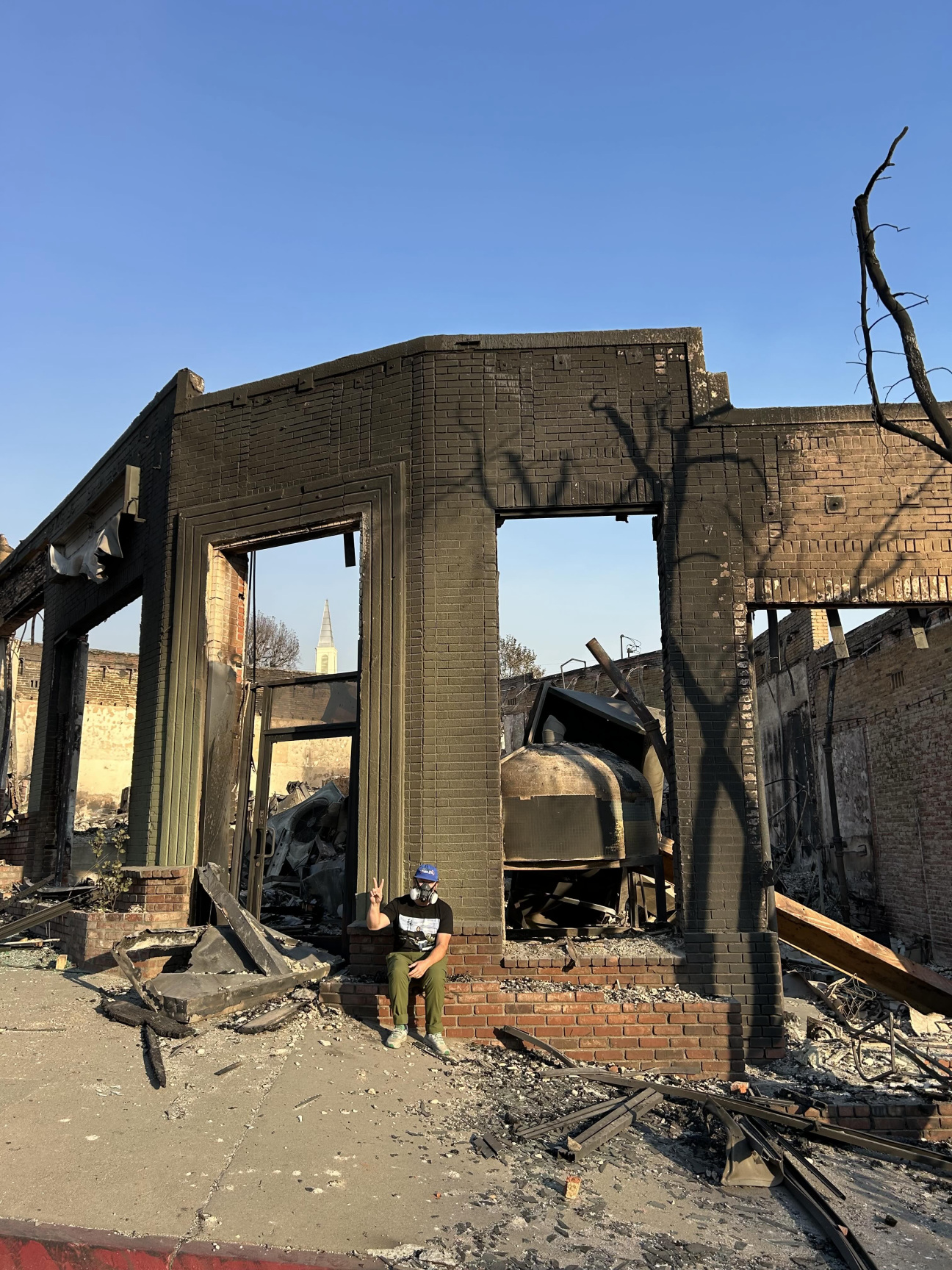
Kevin Hockin, Side Pie (lost in the Eaton Fire)
During the pandemic, Kevin Hockin began selling thin-crust artisanal pizzas out of his side yard. The project was so beloved that in 2023, he was able to open a brick-and-mortar store in Altadena. Side Pie, destroyed in the Eaton Fire, was critically acclaimed—and deemed an essential gathering space for Deadheads. You can support Kevin and his employees here.
“We’d been planning for months to take our daughter to Disneyland for her birthday on Wednesday, Jan. 8.
We walked into [Disneyland] at 8 a.m. and left within an hour. It was like, Where do we go? Our restaurant has burned to the ground. Our house is in limbo. We stayed at the Disneyland hotel that day. It was surreal.
I feel like we've been living in one long, horrible day ever since. It's hard to come up with complete sentences these days, but we're doing the best we can.
We created a business during the pandemic out of nothing. If we've done it once, we can do it again. We lost so much art from the restaurant in the fire—mosaic tiles from my friend Dawn Mendelson, ceramics by Jacob Bell. The circumstances are so sad, but we will rebuild. I just hope that there's as much support in six months—in one, two years—as there is now.”
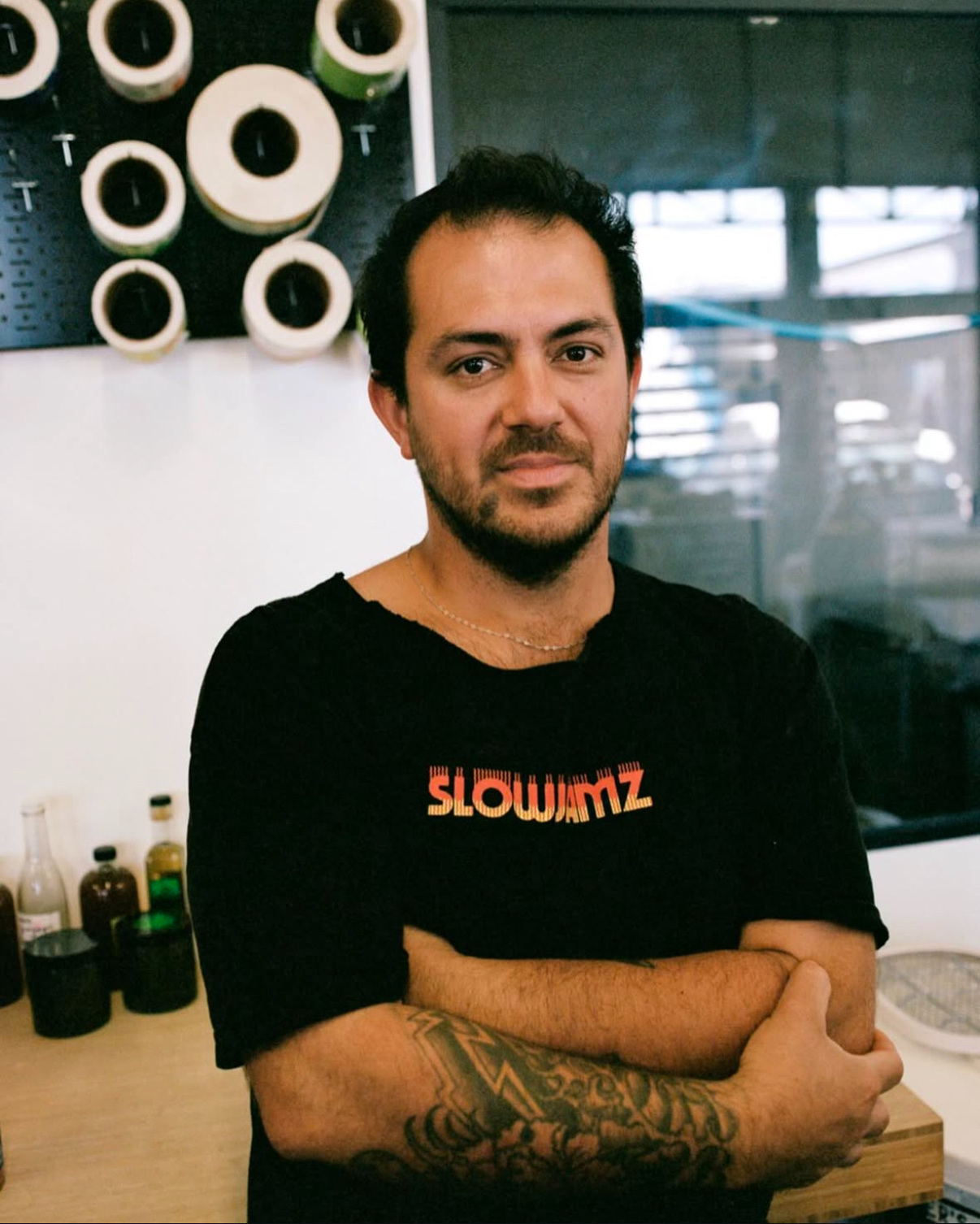
Balo Orozco, Balo
Chef Balo Orozco co-founded sustainable kombucha company Sunset Cultures in 2020 alongside bartender Jacqui Harning. His BALO-branded sodas and shrubs come in flavors like passionfruit makrut lime and strawberry fennel flower. Since the outbreak of the fires, Balo has partnered with World Central Kitchen to serve meals to the displaced and volunteers. They have a consistent need for food and packaging supplies—Balo is taking donations on Venmo, @balo.
“At the beginning, I saw so many chefs jumping in, trying to feed firefighters and everyone. It was amazing—everything happened so quickly. But I also heard from a couple of organizations that food was going bad [because they didn’t know where to send it]. Then World Central Kitchen reached out to me—I started asking for donations [to fund meal prep]. We got a little bit of money, and that's how we started operating.
Now, World Central Kitchen pays for a portion of the meals. We’ve been making almost 1,300 meals every day and sending them to children’s centers, animal rescues, and a few hotels in Koreatown that were rented out for people who lost their homes. [It’s a relief] to know that most of this food is being eaten.
I have chef friends who lost their homes and have been living out of their cars. If we can give people a good meal, I'm happy. That’s all I can do right now. I just hope people feel taken care of, at least for a little while, when I cook for them.”
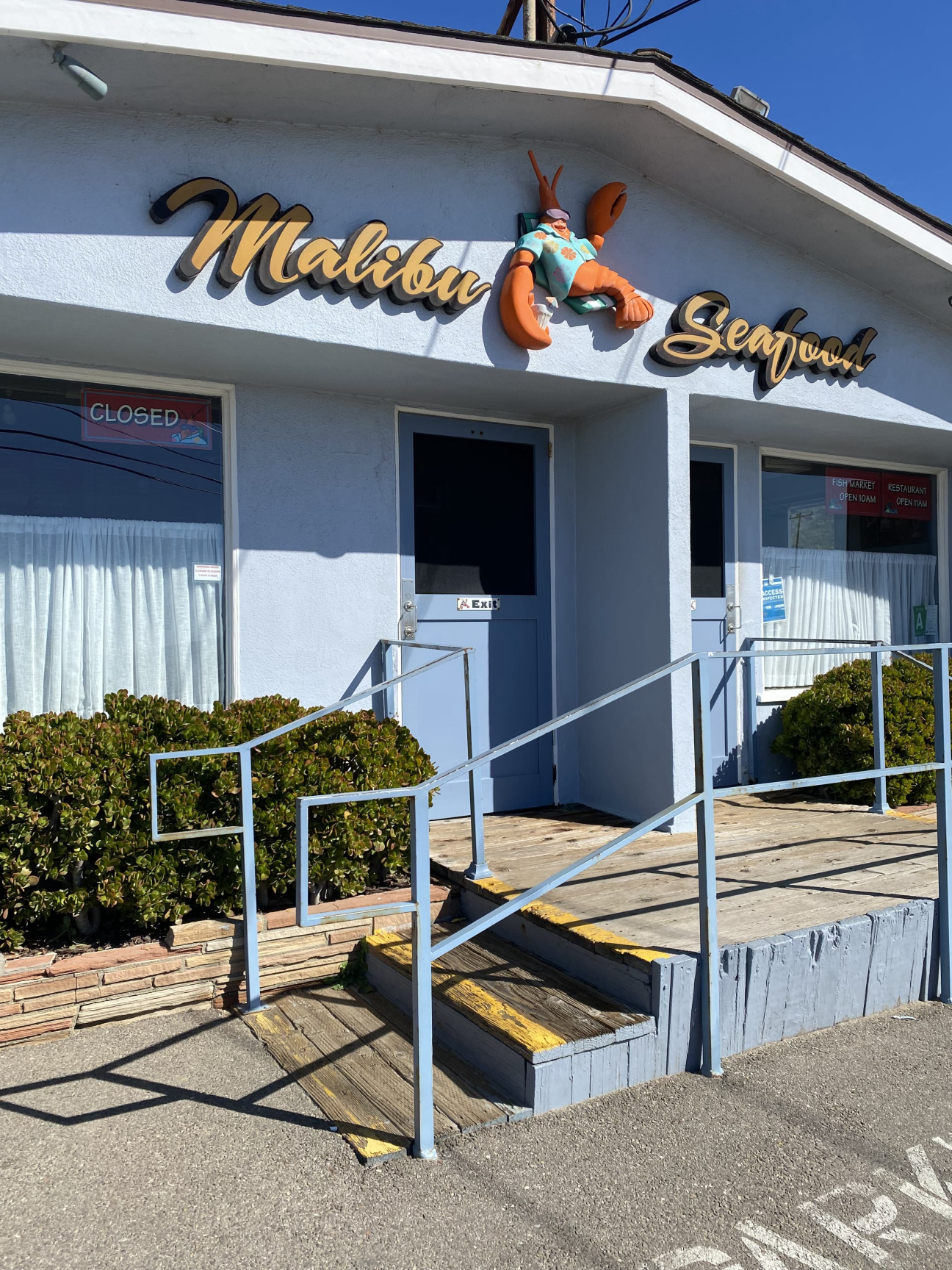
Alette Ridgway, Malibu Seafood (open)
Alette Ridgway is a junior partner at Malibu Seafood, which was founded by her parents Mark and Michelle in 1973. Malibu Seafood, with its friendly waving lobster sign and hand-painted murals, harkens back to a smaller, funkier Malibu, offering up fresh grilled fish, lobster rolls, and an ocean view for accessible prices. After a 10-day closure during the first weeks of the Palisades fire, they are open for business.
“We weren't worried about the Palisades fire at first. Everything was kind of okay, but then they turned the gas off for about 10 days. We completely understand why they did it—they didn't want any little explosions along PCH. All of our employees are safe and okay.
Business is down for us about 75 percent. We've talked to all the other restaurants and businesses in Malibu that we can. Some of them are down 90 percent, and some have yet to reopen at all. We've reduced hours and have cut a few things off the menu.
Our biggest suppliers have said that all restaurants are down right now. Even people that aren't in Malibu or the Palisades are quiet. Places are going to end up closing. I feel like people want to come out and do stuff, but they’re also being respectful for what everybody's lost. You still can't go into any of the burn areas, so we can't really see the devastation. I feel like once we can, it's going to be pretty shocking. But people are talking about how to rebuild and recover.
Malibu Seafood is really home. I grew up going down there all the time. All of the employees are family to me. A lot of our cooks have been working there for 30 years, and then their kids work there. I work in the front side of the restaurant, I'm at the cash register, so then I hang out with those kids all day every day. We have a big group chat going.
At our restaurant, we just try to offer up fresh seafood and a fun place to sit outside and enjoy the view that isn't going to cost you $50 a plate. A place where you can just enjoy the beach.
If you can, support small businesses, any small business, whether that's the mom and pop grocery store, the restaurant, or the boutique. Just support the small businesses that actually need that cash influx right now.”
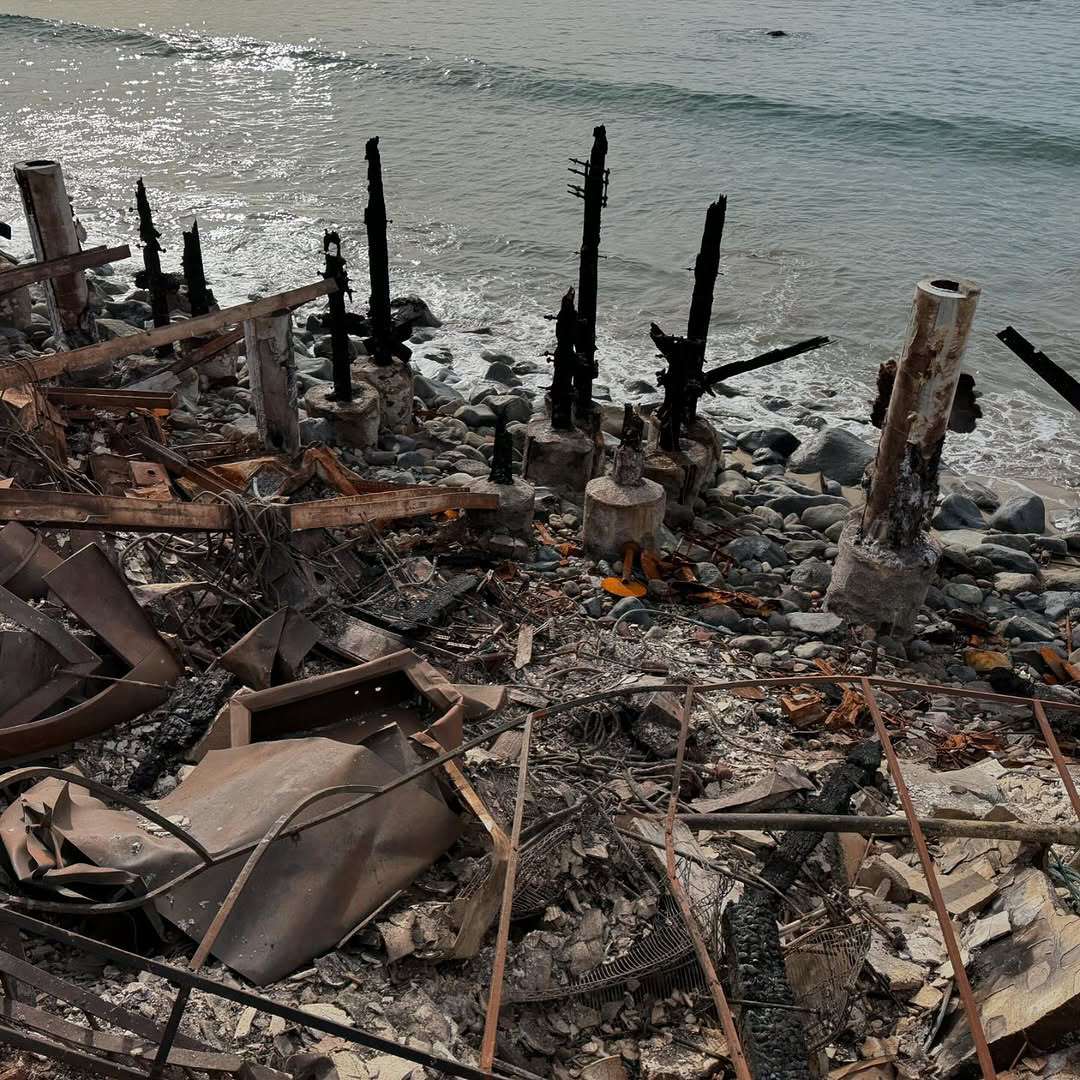
JD Slajchert, Moonshadows Malibu (lost in Palisades Fire)
JD Slajchert’s stepfather, Franco Simplicio, is a co-owner of Moonshadows, a Malibu institution that first opened in 1966. Located right on the water, Moonshadows was Malibu’s famed romantic destination, its tiki-themed patio the ideal setting for a sunset date. After nearly six decades in business, the restaurant was destroyed by the Palisades fire. You can support displaced Moonshadows employees, many of whom worked at the restaurant for years, here.
“I am involved with Moonshadows through my stepfather, Franco Simplicio, who's one of the owners. I grew up eating there—it was our meeting spot, our church, our daily place—and the staff were like family. A lot of them have been with the restaurant for as long as I’ve been going—that’s 20 years of the same cooks, waiters, and valet people.
There’s so much turnover in restaurants, so often that it's hard to feel the heartbeat of a place. But Moonshadows was unique—you always knew what you were getting there. We started a GoFundMe for our staff, who are displaced and now out of work. One-hundred percent of the proceeds are going directly to them.
People from all over the world have been reaching out to me and my family, and I think that’s been the most helpful thing through all of this. It’s a shared grief. I get messages hourly from people saying, ‘That's where I met my wife,’ or ‘That’s where we went on our first date.’“
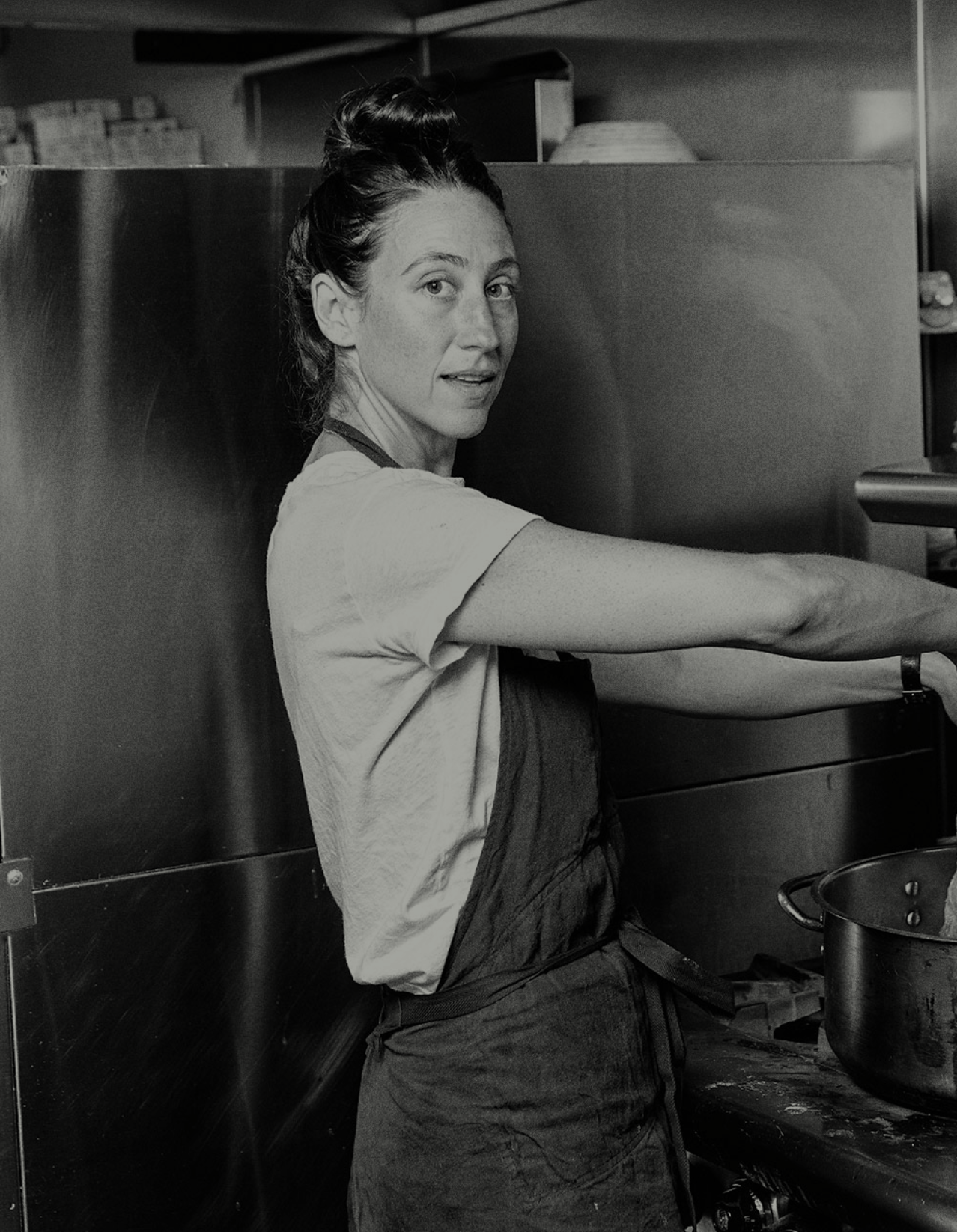
Ashley Wells, co-owner, All Time (open in Los Feliz) and Bernee (currently closed in Altadena)
Ashley Wells co-founded All Time in Los Feliz in 2013 with her husband Tyler. It rapidly became a neighborhood institution serving simple food with ingredients from small farmers and suppliers. In December, the couple opened Bernee, a restaurant in Altadena built around a handcrafted hearth. Bernee is located inside one of the few buildings in Altadena still standing, and is currently closed.
“In the immediate aftermath of the fires, my inclination was to keep our team feeling valued and paid, and to show up for the community. But it was really quiet and scary for businesses those first few days.
When people started coming back to All Time, a lot of them had the look on their faces of really having been through it. The sanctuary that our team was providing, it was so much more than food. That act of gathering people you love, sitting down by candlelight, and having someone take care of you goes back to the dawn of time. That's where I feel like we're doing something meaningful. We've been focused on feeding firefighters, displaced families, and people who lost their homes—it matters so much to the team, and it gives the cooks a sense of duty.
Economically, it's kind of a menacing situation. People don't know if they should be going out to eat. When people do turn up to All Time just as patrons, it’s because we offer them a feeling of comfort, that's all the support that we could ask for.
We just opened Bernee [in Altadena] on Dec. 5, and now of course it’s closed. I can’t comment on the future. But the most special thing about that restaurant is the people who worked there. They’re incredibly generous, sensitive, and caring human beings. You can't burn that down.”
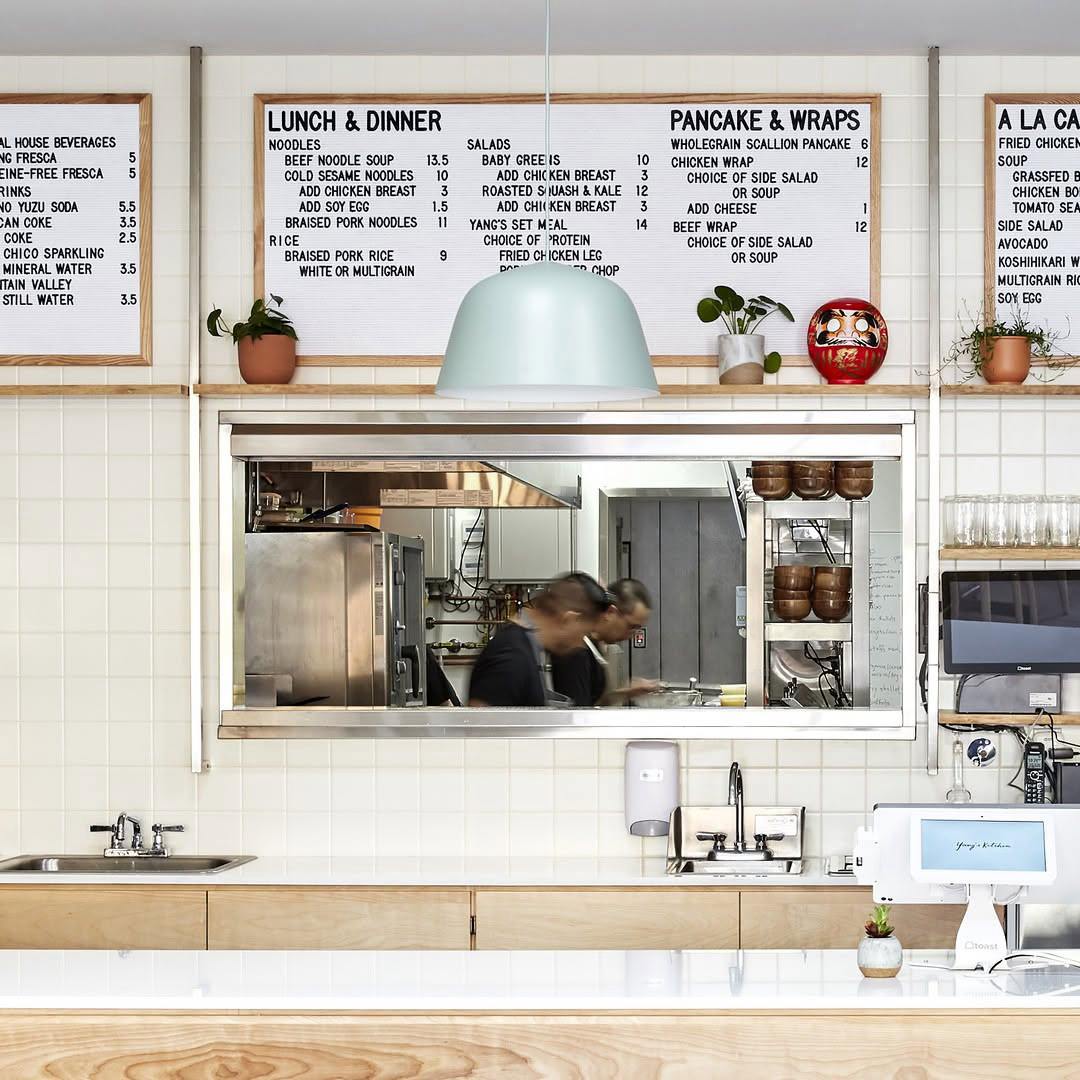
Chris Yang, Yang’s Kitchen (open)
Chris Yang opened Yang’s Kitchen in Alhambra in 2019, to instant critical acclaim. Yang’s offers a twist on Chinese classics and puts an emphasis on sourcing clean, high-end ingredients. Their breakfast is not to be missed.
"Immediately after the fires, we opened because we were far enough away to operate normally. But we knew that it was going to be slow. Sales are definitely down, maybe by 20 or 30 percent. We had some staff who were living near Pasadena, and some of them had to get evacuated. Fortunately nobody lost their home on our staff, but everyone was definitely affected in one way or another, or knew someone who was.
The day that we reopened, we announced that we were going to help cook some meals for donation. And we were also going to do pay-it-forward meals for people who were impacted, so that they could come in and eat without having to pay. The mood was pretty somber. But also there were some people who came in acting as if nothing happened.
Supporting restaurants is kind of a touchy subject. Because on one hand you have a lot of people just saying, please support restaurants, please go out, please give them your business. And then on the other hand, you have a crowd that has really been feeling the effects of inflation in the past few years. I also understand their point of view, just saying that they can't afford it and restaurants are really expensive. So it's kind of like an impossible situation for both sides right now.
I would say for those who can afford it, just keep continuing to go out and support your favorite restaurants. And then for the other group who does really feel the effects of inflation, just be understanding of restaurants as well. Because if there's one thing I could tell restaurant customers, it's that restaurants don't want their prices to be this high, but right now we're forced to have 'em this high and we're still not making very much money. I just wish that that's one thing that people understood."

